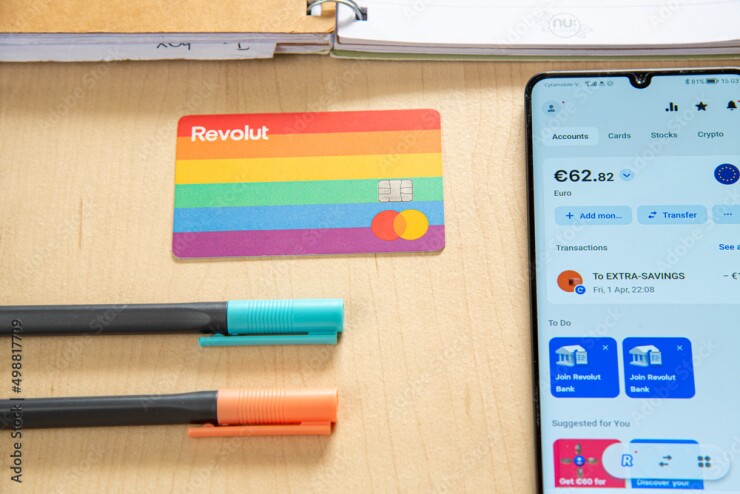
In the race to build a financial services super app, Revolut is partly turning to a Chinese financial super app. U.K.-based Revolut this week launched a trio of new services, including a collaboration with digital giant Ant to enable remittances to China.
That follows other moves such as launching new investment products in the U.K. and expanded credit in the U.S.
"Older millennials up through boomers may be fine with having a Fidelity account or a Chase account and Coinbase account, but younger consumers will want to consolidate these services," Tony DeSanctis, a senior director at Cornerstone Advisors, told American Banker.
Stocks, remittances and loans
Revolut, which has its roots as a digital payments company, has long had a habit of
"Too many Americans are shut out of the credit system or burdened with opaque fees and rigid legacy systems," Sid Jajodia, U.S. CEO and global chief banking officer at Revolut, said in an email. "Our secured credit card is designed to change that. We're offering a flexible, transparent solution that helps users take control of their credit."
Secured credit is a good option for no-file and thin-file consumers, according to Aaron Press, a research director at IDC Insights, adding Revolut has a large user base that could generally be classified as otherwise underbanked. "It seems like a better fit than investing or cryptocurrencies," Press told American Banker.
Read more about mobile banking. (
Besides its U.S. credit, Revolut added new products in other markets. Revolut's new partnership with Ant enables Revolut users to send money to China in yuan via Ant's affiliated Alipay. Users choose the "send international" option in Revolut's app and choose mainland China, then select Alipay as the transfer method. Revolut is hoping to tap the remittance market for payments to China.
Ant, which is also affiliated with the e-commerce site Alibaba, is one of Asia's largest super apps, selling
Revolut also released a Stocks and Shares ISA account in the U.K. This enables users to invest in companies listed in the U.K., Europe and U.S., along with access to hundreds of ETFs, such as BlackRock and Vanguard. Revolut said the ISA, which can be accessed for about $1.30, is a way to bring a wider range of consumers into investments beyond a "privilege reserved for the few."
Revolut did not comment on
Is a super app possible in the U.S.?
Super apps have been a tough sell in the U.S., Press said, noting that no one has achieved meaningful scale.
"The anchor of those systems in other markets is often social media, which is more fragmented in the U.S.," Press said. "More critically, the overall consumer financial services market is highly fragmented."
U.S. consumers aren't used to the idea of a one-stop shop for multiple types of financial services, and the breadth of options means that they tend to shop around rather than depend on a single interface, according to Press. "This could change over time but hasn't been the norm so far. That said, Revolut's target market may be more open to a more consolidated relationship, especially if they don't trust or don't have good access to other options."
The key for firms attempting to build a full range of services is not necessarily to be "all things," but to win loyalty through specialization that can then translate to cross-sales, according to DeSanctis. Venmo and Block's Cash App specializes in P2P payments, while Affirm specializes in buy now/pay later and Chime's specialty is financial inclusion.
"You need to stand out in one niche. You can't have mid-level products …. you have to be a differentiator," DeSanctis said.
Financial super apps are more likely in the U.S. than broad-based all-in-one lifestyle apps like WeChat and Ant, DeSanctis said. "In terms of the historical super app, it's everything ... social media, chat, banking. A financial super app is a different thing," DeSanctis said.





